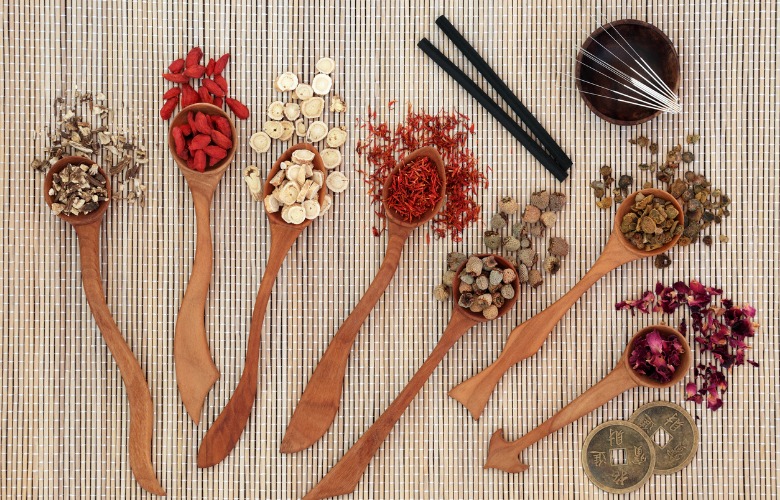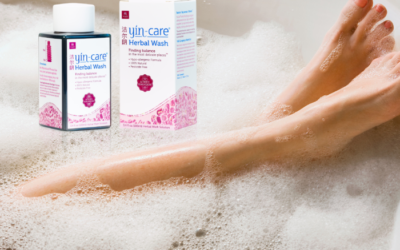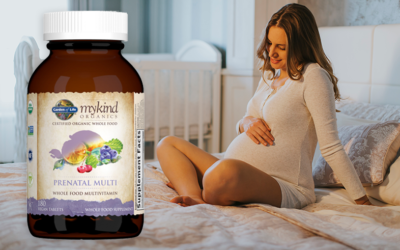Dang Gui Liu Huang Tang
Dang Gui Liu Huang Tang translates to Dang Gui and Six Yellows*. The name refers to the remarkable coincidence that the names of the herbs which are not Dang Gui contain the word yellow. The herbs making up the formula are Dang gui, Sheng di Huang, Shu di Huang, Huang Lian, Huang Qin, Huang Bai, and Huang Qi. The herbal strategy of the formula is remarkably similar to techniques for fighting wildfires. To put out a wildfire hot spots must be cooled. To this end, the formula offers up Huang Lian, Huang Qin, and Huang Bai. These drain fire in the Three Burners. In Traditional Chinese Medicine (TCM) the three burners correlate to three areas of the torso and the organs therein. Dryness must be addressed. Firefighters use helicopters with buckets of water. The herb formula nourishes the body’s reservoir of water through Kidney Yin. To further moisten the environment, Dang Gui, Shu Di Huang, and Sheng Di Huang nourish the blood (a fluid) and fluids in general. The fire must be contained to keep it from spreading. Huang Qi stabilizes the exterior. We see this in its ability to stop sweat. Not only does it contain the fire, but it also fights dryness by keeping fluids (sweat) in the body. Bonus points to Huang Qi. (1)
Settle in and let’s unpack this formula further in a scholarly way. Chinese Medicine constructs herbal formulas. Formulas are not simply a collection of ingredients. The herbs are arranged for optimal effect. This is reflected in the method of categorizing herbs in the formula by rank. There is the Chief herb, this is the one that has the greatest effect against the condition. The Deputy herb helps the chief. Assistant herbs reinforce the Chief or Deputy or moderate their toxic or harsh properties. Finally, the Envoy herb either focuses on actions on a particular area or harmonizes the other herbs in the formula. Not all formulas have a full contingency of officials. There are three Chief herbs in Dang Gui Lui Huang Tang, a trifecta of blood and Yin herbs: Dang Gui, Shu Di Huang, and Sheng Di Huang. Together they nourish the fluids of the body to put out the fire. This is the formula’s primary mission. They also lubricate the intestines in case of constipation. The Deputies are Huang Lian, Huang Qin, and Huang Bai. Often together to drain the whole body of fire and toxins. All three have significant anti-bacterial, anti-viral and anti-fungal properties. Lastly is the Assistant herb, Huang Qi. This herb boosts the Qi and Yang to balance out The Blood and Yin nourishing. These herbs play together frequently in other formulas. The Huangs Lian, Qin and Bai are often used together. Other classic combinations are Huang Qi, Sheng Di Huang and Huang Bai for night sweats. Dang Gui, Shu Di Huang, and Huang Qi are tripled together to expel pus and generate flesh for non-healing sores and ulcers. Dang Gui and Huang Qi go together to help with Blood deficiency, excessive blood loss and ulcerated abscesses. Huang Lian goes with Sheng Di Huang for insomnia and delirium.(1)(2)
In addition to empirical and clinical use, Dang Gui and Six Yellows have some studies to their name.
Psoriasis
Fire within often shows up in the skin, causing tissue changes and irritation as it leaves the body. TCM diagnosis for Psoriasis involves heat in some form as the culprit. Psoriasis is not uncommon, 3% of the US population has one of the five forms. A long-lasting autoimmune disease, psoriasis is characterized by patches of abnormal skin. These skin patches are typically red, itchy, and scaly. Psoriasis varies in severity from small, localized patches to complete body coverage. The condition is distinguished by rapid and excessive growth of the outer most layer of the skin. Normally skin cells are replaced every 28–30 days, in a case of psoriasis it is every 3–5 days. There is no cure. Symptoms can be managed with topical steroids. Dang Gui Liu Huang Tang has been shown to moderate immune response. The mechanism is via T Cells and the conductors of the immune system, dendritic cells. In a study using live mice, Dang Gui Liu Huang Tang significantly reduced the symptoms. The mice had induced psoriasis then they were treated topically with a 1% solution of the formula. The results strongly endorse Dang Gui Liu Huang Tang as a topical treatment for psoriasis.(3)
Cancer Sweats
Terminal cancer patients often suffer from sleep sweats. As the name implies, sweating occurs while sleeping, and ceases after waking. The cause is unknown. In a study of 41 such patients, the Dang Gui Liu Huang Tang was modified by the addition of Fu Xiao Mai (Tritici levis fructus) and Mu Li (Ostreae concha). Both are used traditionally to treat sweating. The quantitative assessment showed sleep sweating was completely relieved in 70% patients. The average time required for a 50% decrease in sweating was 5.3 days. A positive side effect was 78% of patients experienced an increased appetite. There were some adverse reactions. Most commonly diarrhea (14%), nausea (12%), and allergy (2%). The severity of these symptoms was mild and resolved with the cessation of treatment. Findings suggest modified Dang Gui Liu Huang Tang is safe and effective for the treatment of sleep sweats in elderly terminal cancer patients. (4)
Malignant Lymphoma is a cancer of the lymphatic tissues and is often accompanied by night sweats. These are used as a prognostic factor. If they are present, the prognosis is not favorable and the disease is relatively severe. Over the course of two years (1998 -2000), the researchers used Dang Gui Liu Huang Tang with modifications to treat the night sweats in malignant lymphoma patients. The results were good. Out of the 60 cases, there were 32 cases in which symptoms completely resolved. Twenty cases showed a marked reduction in sweating and general improvement. Eight cases did not experience any results. The overall effective rate was 87%.(5)
Pour yourself another cup of tea. Read some Dang Gui Liu Huang Tang case studies here. These cover the formula’s use for allergic purpura, urinary tract infection, the sequelae of viral myocarditis, and hypertension.
Take good care of your forest and if it starts burning douse with Dang Gui Liu Huang Tang.
Serving size: consume according to label directions or instructions from your knowledgeable healthcare practitioner.
Caution: weak digestion.
Disclaimer: Use herbs wisely. If you have questions or special considerations, work with your practitioner. If symptoms worsen or you have concerns, contact a knowledgeable practitioner. These statements have not been evaluated by the Food and Drug Administration. These products are not intended to diagnose, treat, cure or prevent any disease.
*great band name!
References
1 Bensky, Scheid, Ellis, Barolet, Formulas and Strategies, Portable 2nd edition, Eastland Press Inc. 2015
2 Bensky, gamble, Chinese Herbal Medicine Materia Medica, Eastland Press, 1986
3 Ly Thi Huong Nguyen, Sang-Hyun Ahn, Uy Thai Nguyen, In-Jun Yang, Dang-Gui-Liu-Huang Tang a traditional herbal formula, ameliorates imiquimod-induced psoriasis-like skin inflammation in mice by inhibiting IL-22 production, Phytomedicine, Volume 47, 1 August 2018, Pages 48-57
4 Yu-Chuan Huang, Hen-Hong Chang, Shih-CheChiu, Yuen-LiangLai, Yu-Jen Chen, Modified Dang Gui Liu Huang Tang Eases Sleep Sweats in Elderly Patients with Terminal Cancer, International Journal of Gerontology, Volume 10, Issue 2, June 2016, Pages 96-99
5 New Journal of Chinese Medicine, #6, 2001, p. 59 Dang Gui Liu Huang Tang (Angelica Six Yellow Decoction) in the treatment of 60 cases of night sweats from malignant lymphoma
Zhang Ai-qin, Sun Zai-Jian, Xin Zhong Yi (Functional translation by Simon Becker, Dipl. Ac & C.H. NCCAOM

A licensed acupuncturist since 1999, Diana lives and works in Santa Cruz, California. Her practice focuses on pain management, stress reduction, and creating health. A longtime friend of plants, she loves the herbal side of Traditional Chinese Medicine. Diana shares her herbal interests through writing and a card game she designed and illustrated: Herb Apocalypse*. Volunteer work includes The Rabbit Haven, a rabbit rescue, and Livity Rising, free community healing clinics. Author of Herb Apothecary: The Coloring Book: 54 Chinese Herbs available on Amazon.




Thank you for this informative article!! I’ve been studying for my herbal board and your description is brilliant!